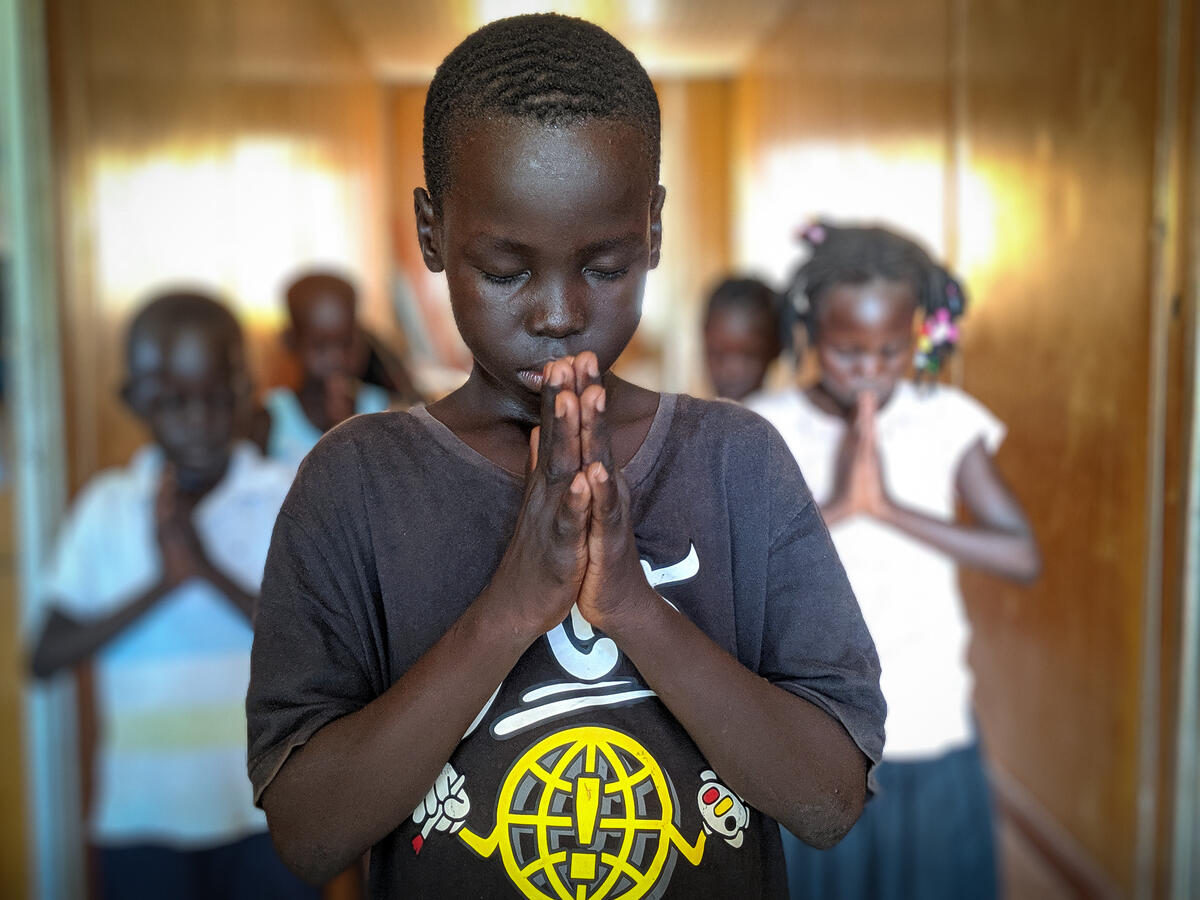
- 110 million children in Asia facing hunger due to the pandemic
- Up to 85 million families across Asia may have little or no food stocks because of COVID-19
- Up to eight million children have been pushed into child labour or begging
- 84 per cent of Venezuelan migrants surveyed in seven countries reported significant drop in income while 80.3 per cent said food was scarce, with every third child going to bed hungry (potentially more than 1.075 million children)
- Across Africa, 69 per cent of people surveyed said they are earning less than half of pre-COVID-19 income, with the majority resorting to spending less on healthy food
Children are going hungry, being forced into work and even early marriage by the economic impact of COVID-19, a comprehensive global survey by World Vision has confirmed.
The survey of around 29,000 people in nine countries in Asia, six in Africa and Latin America has found COVID-19 ravaging incomes in vulnerable communities, forcing parents to make impossible choices for their children.
Acting World Vision CEO Graham Strong said: "As many as eight million children in Asia alone are being forced to work, beg or – in the case of girls – marry, as the pandemic drives families into poverty. Parents simply can't afford to buy food," Mr Strong said.
Aftershocks: Out of Time, released today, warned that the dire economic effects of COVID-19 were hitting hard across the globe with one in three Venezuelan children suffering from hunger, and an estimated 85 million families across Asia with little or no food stocks and 110 million children also going hungry.
The assessments conducted by World Vision across Latin America, Sub-Saharan Africa, and Asia confirmed that many families are fighting for survival, with major income disruptions in income affecting the ability to buy enough food, and risks to children, Mr Strong said.
"Child labour and child marriage are forms of slavery. To stop the rise in these catastrophic responses to the pandemic, families must get what they need. In a world of plenty, no child should go to bed hungry, and no child should be forced to beg."
"Vulnerable families already dependent on humanitarian assistance, or suffering from conflict, climate change, instability or displacement, are often those hardest hit."
World Vision conducted more than 26,000 interviews in nine countries in Asia, gathered data from more than 2400 small business owners in six countries in Africa, and interviewed almost 400 Venezuelan migrants across seven countries in Latin America. The data confirmed that projections by global agencies about the potential impact of the pandemic are already happening.
Eighty-four per cent of Venezuelan migrants surveyed in Brazil, Bolivia, Chile, Colombia, Ecuador, Peru, and Venezuela reported a significant drop in income. The monthly average income of respondents in Nepal, for example, sank by 86 per cent from $US199 to $US27, and in Sri Lanka plummeted 82 per cent from $US126 to $US35.
"More than 80 per cent of migrants World Vision spoke to said food was scarce, to the extent that one in three Venezuelan migrant children is suffering from hunger. Our assessment in Africa also saw the majority of respondents, mostly women, spending less on healthy food to cope with income loss," Mr Strong said. "And that could lead to malnutrition."
Aftershocks: Out of Time outlines World Vision's global call to action to governments, UN agencies, donors, NGOs, and the private sector to act together to scale up child-sensitive, social protection programmes; to keep food and market systems going; protect jobs and livelihoods now; and invest in an inclusive, resilient and green economic recovery.
"Without urgent action we risk an escalation in extreme poverty and hunger not seen in decades," Mr Strong said. "It's imperative we bolster the response globally, because COVID-19 isn't over until it's over for everybody."






